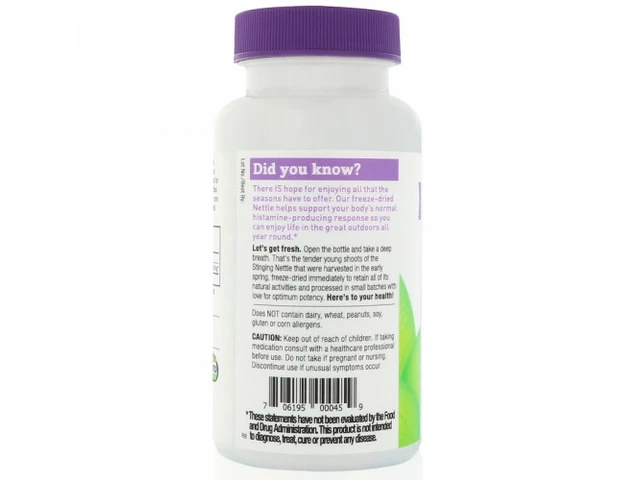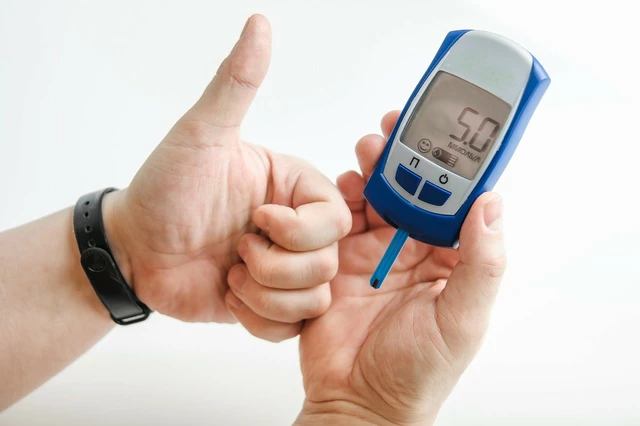Understanding Vitamin E: The Basics
If you're anything like me, you've probably spent a good chunk of your life hearing about the importance of vitamins. And no, I'm not just talking about the ones that come in gummy form (although those are pretty great, too). I'm talking about the nutrients that our bodies need to function properly, and one of the most crucial among these is Vitamin E.
Vitamin E is a fat-soluble nutrient that plays a key role in many bodily functions. It's also an antioxidant, which means it helps to protect our cells from damage. This vitamin is essential for our immune system, cell function, and skin health. But what exactly does Vitamin E do, and why is it so important for our bodies?
The Antioxidant Power of Vitamin E
One of the most noteworthy aspects of Vitamin E is its antioxidant properties. Antioxidants are substances that help protect our cells from damage caused by free radicals—unstable molecules that can cause damage to our cells. This damage, also known as oxidative stress, is linked to chronic diseases like heart disease and cancer.
By acting as an antioxidant, Vitamin E helps to neutralize these free radicals, preventing them from causing cellular damage. This is why I often refer to Vitamin E as an 'antioxidant powerhouse'—its protective capabilities are truly remarkable, and its importance in maintaining our health cannot be overstated.
Boosting Your Immune System with Vitamin E
Another significant benefit of Vitamin E is its role in maintaining a robust immune system. A strong immune system is crucial for fighting off infections and diseases, and Vitamin E is one of the key players in this process.
As an antioxidant, Vitamin E protects immune cells from damage, ensuring that they can function effectively. Moreover, this vitamin also aids in the production of immune cells, contributing to a stronger, more responsive immune system. So the next time you're feeling under the weather, remember that Vitamin E is your body's unsung hero, working tirelessly to keep you healthy.
Vitamin E and Skin Health
We've talked about the internal benefits of Vitamin E, but did you know that this vitamin is also fantastic for your skin? That's right—Vitamin E can help to keep your skin looking young, healthy, and vibrant.
As an antioxidant, Vitamin E protects the skin from damage caused by free radicals, which can lead to signs of aging like wrinkles and fine lines. Furthermore, Vitamin E has moisturizing properties that can help to keep your skin hydrated, which is crucial for maintaining a healthy and youthful appearance. It's no wonder why Vitamin E is a common ingredient in many skincare products!
Getting Enough Vitamin E: Food Sources and Supplements
Now that you understand the importance of Vitamin E, you're probably wondering how you can ensure you're getting enough of it. Fortunately, this vitamin is found in a wide variety of foods, including nuts and seeds, spinach and broccoli, and even some types of fish.
However, if you're not getting enough Vitamin E from your diet, supplements are also an option. Just remember to talk to your healthcare provider before starting any new supplement regimen. As with any nutrient, it's possible to have too much of a good thing, and Vitamin E is no exception. So make sure you're getting the right amount for your personal health needs.
In conclusion, Vitamin E is a crucial nutrient that plays an essential role in many bodily functions. From its antioxidant properties to its benefits for the immune system and skin health, this vitamin is truly a powerhouse. So whether you're getting it from your diet or from supplements, make sure you're getting enough Vitamin E—it's what your body needs to stay healthy and strong.








Diane Helene Lalande July 21, 2023
I appreciate the thorough overview of Vitamin E; it's clear why this nutrient is often highlighted for its antioxidant capacity. The explanations are concise yet informative, making it easy for readers to grasp the benefits without feeling overwhelmed. Keep up the good work.
Jason Petersen July 21, 2023
Too much hype. Vitamin E alone won’t fix everything.
Xander Laframboise July 21, 2023
While it’s true that antioxidants have their place, the article glosses over the nuanced research showing that high-dose supplements can sometimes act pro‑oxidantly. Moreover, relying solely on Vitamin E ignores the synergistic effects of other micronutrients. It’s not a magic bullet; diet diversity remains key. The claim that it "prevents chronic disease" feels overstated without referencing meta‑analyses. In short, moderation and balance trump single‑nutrient obsession.
Manju priya July 21, 2023
Excellent reminder to stay proactive about nutrition! Incorporating Vitamin E‑rich foods can boost both immunity and skin health, which is especially important during seasonal changes. 😊 Remember, consistency beats occasional supplementation every time.
beverly judge July 21, 2023
For anyone looking to increase their intake, consider adding these sources to your meals:
• Almonds – a handful provides about 7 mg of Vitamin E.
• Sunflower seeds – great as a topping for salads.
• Spinach – cooks down nicely in soups.
• Avocado – versatile for spreads or smoothies.
These foods also supply healthy fats that aid absorption, so pair them with a bit of olive oil for optimal benefit.
Capt Jack Sparrow July 21, 2023
People often forget that Vitamin E is fat‑soluble, meaning it’s best absorbed with dietary fat. If you take a supplement on an empty stomach, you’re basically wasting it. Also, the recommended daily allowance differs by age and sex, so don’t just copy numbers from a generic chart.
Melissa Gerard July 21, 2023
Another overhyped vitamin article 🙄
Jesse Groenendaal July 21, 2023
We must be cautious not to glorify supplements over whole foods. The moral of the story is that balance, not obsession, leads to true health.
Persephone McNair July 21, 2023
From a biochemical perspective, the tocopherol isoforms exhibit differential bioavailability, which the piece fails to delineate. Moreover, the antioxidant network involves synergistic redox cycling with ascorbate, a nuance often omitted in lay articles.
siddharth singh July 21, 2023
Building upon the previous list of Vitamin E sources, it is vital to recognize that the bioactive compounds within these foods do not act in isolation. For instance, the phenolic constituents of spinach can potentiate the antioxidant effect of tocopherols by recycling oxidized molecules back to their active state. Additionally, the presence of dietary monounsaturated fats, such as those found in olives and avocados, facilitates micelle formation, thereby enhancing the intestinal absorption of this fat‑soluble vitamin. It is also noteworthy that cooking methods influence nutrient retention; steaming preserves more tocopherol activity compared to boiling, which leaches water‑soluble compounds. When integrating nuts like almonds into your regimen, consider portion control, as excessive caloric intake may offset the cardiovascular benefits associated with moderate consumption. Furthermore, the interaction between Vitamin E and other micronutrients, such as Vitamin C and selenium, creates a synergistic antioxidant network that protects cellular membranes more effectively than any single nutrient alone. Clinical studies have shown that populations with diversified dietary patterns, rich in both natural and fortified sources of Vitamin E, exhibit lower markers of oxidative stress. However, supplementation should be approached judiciously; high‑dose synthetic forms have been linked to increased hemorrhagic risk in certain cohorts. Therefore, a balanced approach-prioritizing whole foods, mindful cooking techniques, and prudent supplementation when necessary-optimizes both safety and efficacy. In summary, the nuanced interplay of food matrix, co‑nutrients, and lifestyle factors underscores the importance of a holistic dietary strategy for harnessing the full potential of Vitamin E.
Angela Green July 21, 2023
Just a quick note: the article frequently uses "its" when it should be "it's" and mixes up "affect" with "effect". A little copy‑editing would go a long way.
April Malley July 21, 2023
Great points, everyone, and thank you for the detailed sources! I’d love to add that, in my experience, pairing Vitamin E‑rich foods with a splash of lemon juice not only enhances flavor but also boosts absorption of fat‑soluble nutrients, especially when the meal includes leafy greens. Plus, the added vitamin C synergizes nicely, so it’s a win‑win.
scott bradshaw July 22, 2023
Oh sure, because we all need a daily dose of hype.
Cindy Knox July 22, 2023
I hear you, but let’s not discount the genuine benefits that many people have experienced. While the tone may feel exaggerated, the science does support a role for Vitamin E in skin health and immune function, especially when sourced from whole foods.
Edwin Levita July 22, 2023
One must admit that the narrative surrounding Vitamin E often drifts into the realm of melodrama, yet the underlying biochemistry remains undeniably elegant. Its capacity to quench free radicals, while understated, is a testament to nature's subtle sophistication.